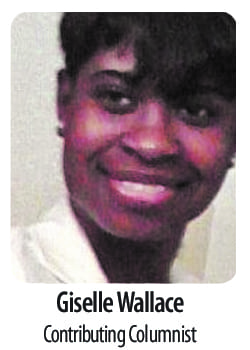My identity is not a threat to black masculinity
 While sitting alone having lunch at the mall recently, I was approached by an middle-aged African-American man who greeted me and, a bit later in conversation, asked for my name and phone number because he was looking for a girlfriend.
While sitting alone having lunch at the mall recently, I was approached by an middle-aged African-American man who greeted me and, a bit later in conversation, asked for my name and phone number because he was looking for a girlfriend.
I kindly declined to give out my number. When he asked me why not, I responded, “I don’t want to because I’m a lesbian.”
Without hesitation and with curiosity in his eyes, he asked, “So, who is the man in the relationship?”
I was taken aback by such an intrusive and sexist question from a stranger. He must have realized by my silence and my expression that I was upset.
So he said, “All I’m saying, sister, is that you need a strong black man in your life and not some other woman.”
I immediately responded, “You assume that I’m in a relationship with a woman. But I am single, and when I decide to be in a relationship, it will be a relationship between two women who love and respect each other. And by the way, you are not invited!”
I walked away.
Based on my experience as an African-American lesbian, I believe this type of encounter is, unfortunately, much more common than we like to talk about within the black community.
There is a gross stigma in that community around being black and being a lesbian, because people think — most inaccurately — that the existence of black lesbians reflects negatively on African-American heterosexual men, suggesting that they have failed us.
And black men have this notion imbedded in their minds that they have to keep their black women to themselves, and if your woman goes astray, it’s because you weren’t man enough. They end up with their pride and their ego hurt.
I’m compelled to say that I’m an individual first and foremost. And secondly, I’m not attracted to conformity.
The black family is considered to be a symbol of pride and responsibility, and I respect this concept. What I don’t respect the idea that it’s a problem to be black, a female and a lesbian. I am who I am, and although I’ve been conditioned to represent heteronormative standards within the black community, that doesn’t mean that I should forsake my identity as a black lesbian.
If you don’t understand me, that’s okay. You can as to get to know me better if you want. Our interactions don’t have to end in intolerance and anger.
We can start new conversations and learn from one another to build up and expand our relationship perspectives, instead of creating relationship barriers that hinders those who have a limited concept about what it means to be black, to be a lesbian and to be a woman in this black construct.
